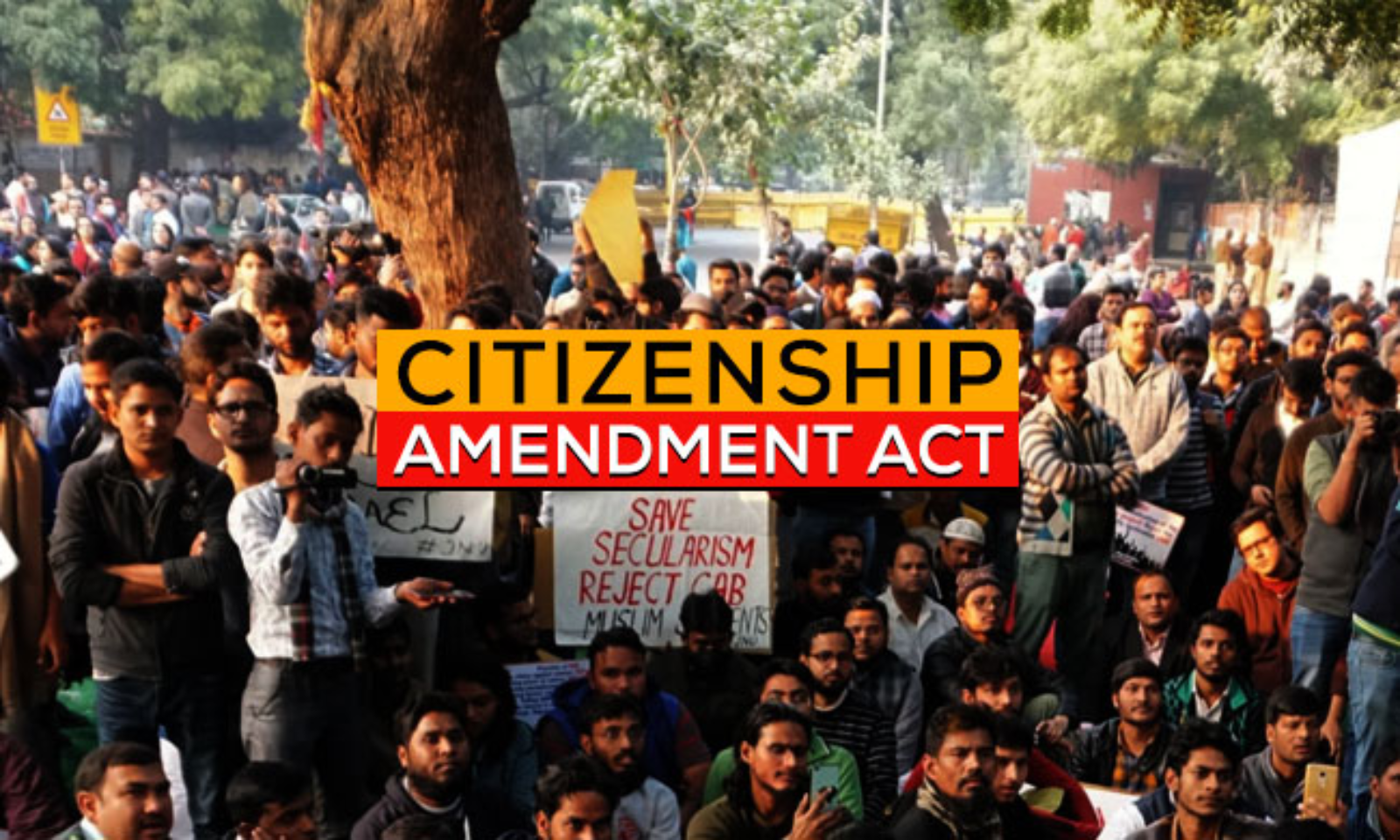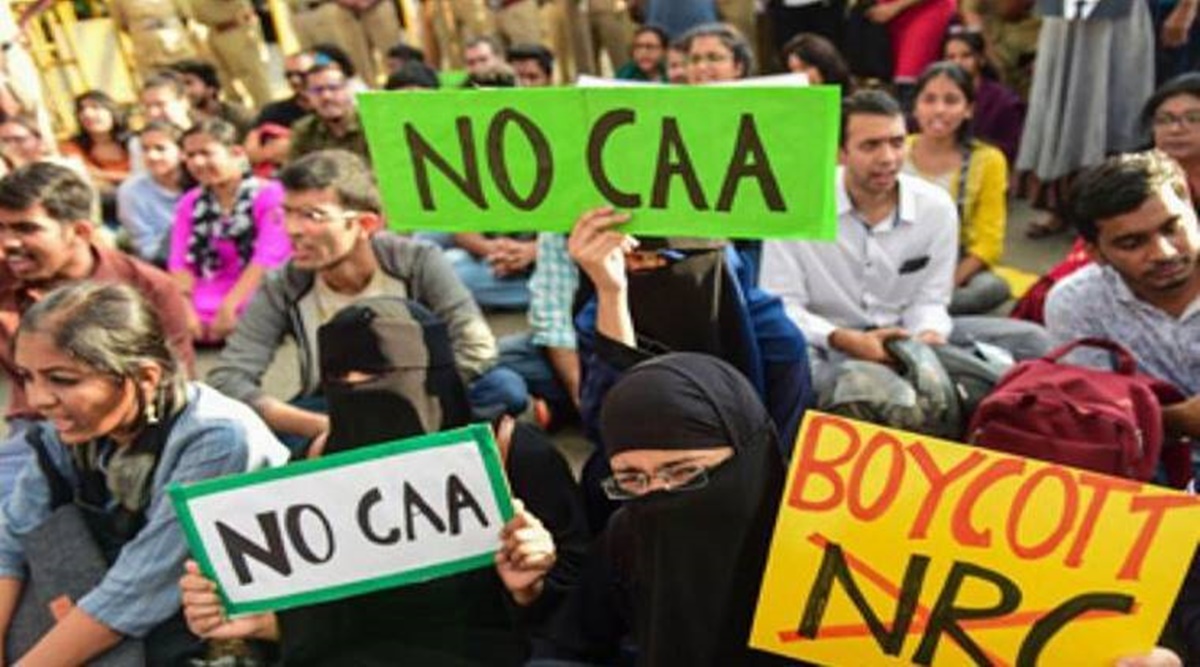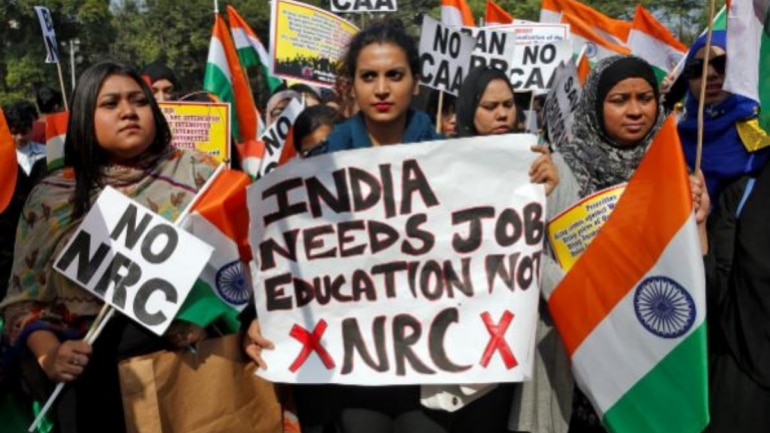CAA is to be heard by Supreme Court along with over 200 PILs on Monday.

A bench conducted by Chief Justice U U Lalit will hear the petitions contesting the validity of the CAA, the passage of which sparked widespread protests.
On Monday, the Supreme Court will hear more than 200 PILs, many of which contest the constitutionality of the contentious Citizenship (Amendment) Act.
A bench conducted by Chief Justice U U Lalit will hear the petitions contesting the validity of the CAA, the passage of which sparked widespread protests.
A bench of the Chief Justice and Justice S. Ravindra Bhat has scheduled 220 petitions for hearing, including the lead petition filed by the Indian Union of Muslim League against the CAA, according to a list of companies available on the Supreme Court website. A number of Supreme Court-pending PILs will also be heard.

The Security of Women from Domestic Violence Act requires that a sufficient infrastructure be established nationwide to provide effective legal aid to impacted women. The CJI-led bench is scheduled to hear a number of other PILs, including one from the organization We The Women of India.
The petition asserted that domestic violence is still the most frequent crime against women in India, even though the law has been in place for more than 15 years.
After hearing several arguments, the Supreme Court decided not to block the Citizenship (Amendment) Act’s (CAA) implementation on December 18, 2019, but it did send notices to the Center.
The amended law will grant citizenship to non-Muslim immigrants who entered Pakistan, Bangladesh, or Afghanistan on or before December 31, 2014, and who belong to the Hindu, Sikh, Buddhist, Christian, Jain, or Parsi communities.
The Center received a notice from the Supreme Court, which required a response by the second week of January 2020.
The matter, which involved numerous lawyers and litigants, could not, however, be heard in its entirety due to COVID-19-induced restrictions. One of the petitioners who challenged the CAA, the Indian Union Muslim League (IUML), argued that the law infringes on the fundamental right to equality and tries to grant citizenship to some illegal immigrants by making religious exclusions.
IUML, represented by Pallavi Pratap, asks for a temporary halt to the law’s application in its petition. Congressman Jairam Ramesh claims that the Act “brazenly attacks” the fundamental liberties envisioned by the Constitution and “treats equals as unequal.”

The petition claims that the contested law “creates two classifications, namely the classification based on geography and the classification based on religion, and both classifications are completely unreasonable and share no rational nexus to the object of the contested law, namely to provide shelter, safety, and citizenship to communities who are experiencing religious persecution in their home country.”
Other petitions have been submitted by RJD leader Manoj Jha, Trinamool Congress MP Mahua Moitra, and AIMIM leader Asaduddin Owaisi, among others, contesting the constitutionality of the Citizenship (Amendment) Act, 2019.
Jamiat Ulama-i-Hind, a Muslim organization, the All Assam Students Union (AASU), the CPI, the Peace Party, the Rihai Manch NGOs, Citizens Against Hate, attorney M. Students studying law, and L. Sharma have also petitioned the Supreme Court to overturn the Act.
What is the CAA, exactly?
The Citizenship Act of 1955 was redrafted by the Citizenship Amendment Bill (CAA Bill), which was first presented to the Lok Sabha in 2016. The Joint Parliamentary Committee was entrusted with this bill, and on January 7, 2019, it issued a report. The Citizenship Amendment Bill was approved by the Lok Sabha on January 8, 2019, but it was revoked when the 16th Lok Sabha was dissolved. The bill was reintroduced by the minister of home affairs, Amit Shah, on December 9 in the 17th Lok Sabha, and it was later approved on December 10. On December 11th, the Rajya Sabha approved the legislation.
For illegal immigrants who arrived in India on or before December 31, 2014, Indian citizenship was granted through the CAA. The Act was passed to assist immigrants of six different religions, including Hindus, Sikhs, Buddhists, Jains, Parsis, and Christians, who were fleeing Afghanistan, Bangladesh, and Pakistan. Anyone is eligible for this act if they have lived in India for at least 11 of the 14 years prior to the last 12 months. For the designated category of illegal immigrants, the required period of residency has been lowered from 11 to 5.

The concept of citizenship describes the connection between the nation and the people who comprise it. It grants a person certain privileges in return for carrying out certain obligations or duties owed to the state, such as the right to vote and to hold particular public offices. According to the Indian Constitution, the entire nation has a single citizenship.
The Indian Constitution grants Parliament the authority to enact laws governing citizenship rights in Article 11. The Citizenship Act of 1955, which established the processes for acquiring and determining Indian citizenship, was consequently passed by the parliament.
The Seventh Schedule’s Entry 17, List 1, covers citizenship, naturalization, and aliens. As a result, only Parliament has the power to pass legislation governing citizenship. A person could acquire Indian citizenship prior to 1987 just by virtue of being born there.
The law governing citizenship was then altered to add the additional requirement that at least one parent be an Indian in response to populist movements alleging widespread illegal migration from Bangladesh. The law was further changed in 2004 to stipulate that one parent must be an Indian and that the other parent must not be an illegal immigrant.
Who in India is a Foreign Migrant?
According to the Act, a foreign national is someone who enters the nation without the appropriate travel documentation, like a passport and visa or enters with a valid form of identification but stays longer than is allowed.
The Foreigners Act of 1946 and the Passport (Entry into India) Act of 1920 both allow for the imprisonment or deportation of illegal immigrants.
Before the Act (CAA) was passed, Illegal immigrants could not currently apply for citizenship. They are unable to naturalize or register as Indian citizens. Both the Foreigners Act and the Passport Act, which both allow for the imprisonment or deportation of illegal immigrants, forbid such people. By registering, a person can become an Indian citizen.

According to Section 5(a) of the Citizenship Act of 1955(CAA), people of Indian descent must have lived in India for seven years before submitting an application for registration. Before applying for citizenship, they additionally had to have resided in India for a continuous period of 12 months.
On the report to the Citizenship Act of 1955(CAA), the applicant had to have spent 11 out of the previous 14 years of their life in India.
What does the Act CAA hope to accomplish?
If illegal immigrants are people of religious minorities from Bangladesh, Pakistan, or Afghanistan, the Citizenship Amendment Act (CAA) 2019 seeks to amend the Foreigners Act, the Passport Act, and the Citizenship Act.
The CAA 2019 features
The Act’s (CAA) goal is to amend the Citizenship Act of 1955 to grant citizenship to Sikh, Hindu, Buddhist, Jain, Parsi, and Christian illegal immigrants from Afghanistan, Bangladesh, and Pakistan. In other words, the Act aims to increase the availability of Indian citizenship to marginalized residents of India’s neighboring nations.
The law aims to safeguard against illegal immigration, those who were “forced or compelled to seek shelter in India due to religious persecution.”
The amendment shortens the naturalization process for applicants who follow one of these six religions from 11 to 5 years. By the citizenship deadline of December 31, 2014, the applicant must have arrived in India.

The Act specifies the following naturalization that:
- These people will be regarded as Indian citizens as of the date of their entry, and
- They will have any legal actions against them dismissed because of their citizenship or illegal immigration.
- It also states that owners of Overseas Citizen of India (OCI) cards, which permit foreign nationals of Indian descent to live and work permanently in India, run the risk of losing their status if they break local laws, whether they are serious infractions or minor ones.
Exception in some cases:
- The Act also declares that the provisions governing citizenship for undocumented immigrants do not apply to the tribal areas of Assam, Meghalaya, Mizoram, and Tripura, which are listed in the Constitution’s Sixth Schedule.
- The tribal regions in Assam, Meghalaya, and Mizoram, respectively, include Tripura Tribal Areas District, Chakma District, Garo Hills, and Karbi Anglong.
- Also excluded are the regions covered by the Bengal Eastern Frontier Regulation of 1873’s Inner Line Permit.
edited and proofread by nikita sharma




